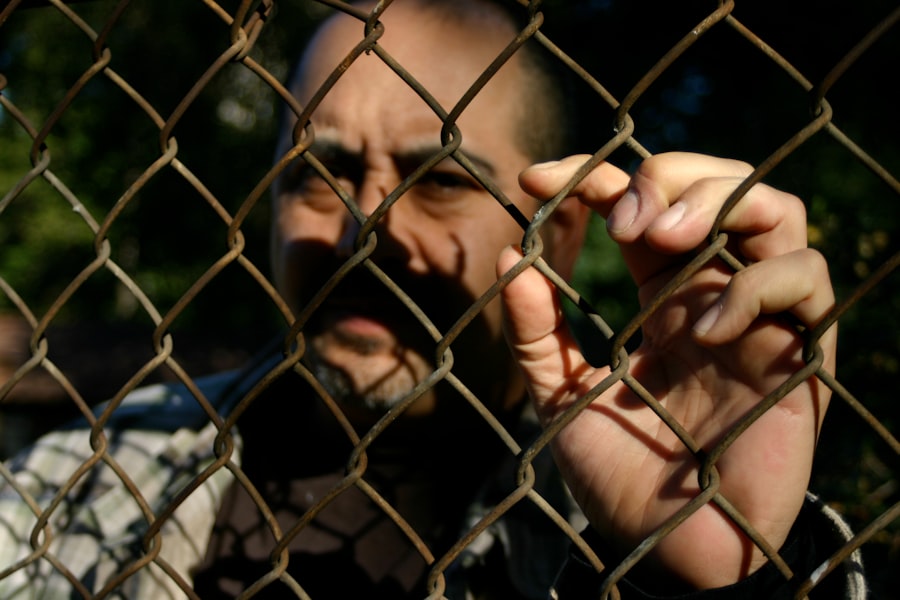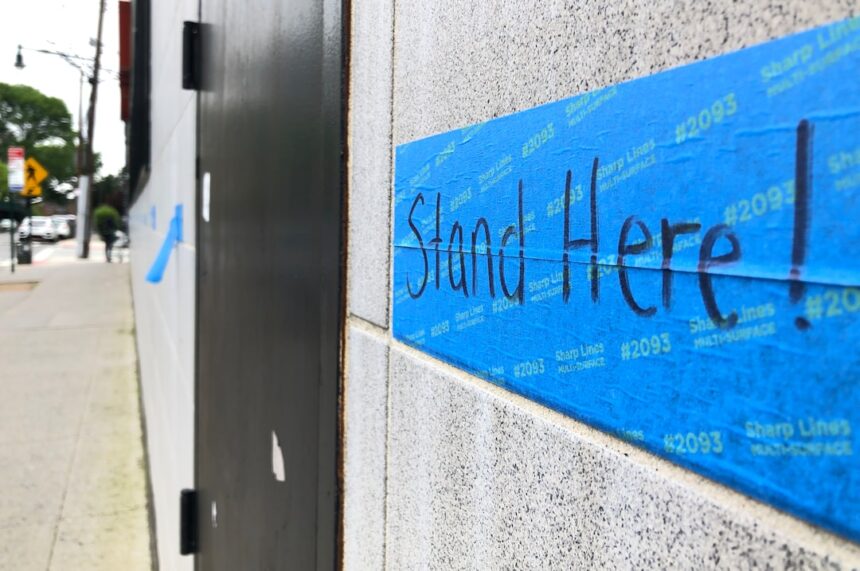Dissociation is a complex psychological phenomenon that can manifest in various ways, often as a response to overwhelming stress or trauma. You may find yourself feeling detached from your thoughts, emotions, or sense of identity, as if you are observing your life from a distance. This disconnection can serve as a protective mechanism, allowing you to cope with experiences that are too intense or painful to process fully.
Understanding dissociation is crucial, as it can help you recognize when it occurs and why it might be happening in your life. The experience of dissociation can range from mild daydreaming to severe dissociative disorders. You might notice moments when you lose track of time or feel as though you are in a dreamlike state.
These experiences can be unsettling, leaving you confused or anxious about your reality. By acknowledging the nature of dissociation, you can begin to explore its roots and how it relates to your personal experiences, ultimately empowering yourself to address it more effectively.
Key Takeaways
- Dissociation is a common coping mechanism for dealing with trauma and stress, where a person disconnects from their thoughts, feelings, and surroundings.
- Symptoms of dissociation can include feeling disconnected from oneself, experiencing memory lapses, and having a sense of being outside one’s body.
- Seeking professional help, such as therapy and counseling, is crucial for managing dissociation and addressing underlying trauma.
- Coping strategies for managing dissociation may include grounding techniques, mindfulness practices, and creating a safe and comforting environment.
- Building a support system of trusted friends, family members, or support groups can provide validation, understanding, and encouragement for those dealing with dissociation.
Recognizing Symptoms of Dissociation
Recognizing the symptoms of dissociation is an essential step in understanding your experiences. You may experience a variety of symptoms, including memory lapses, feelings of unreality, or a sense of detachment from your body. These symptoms can be fleeting or persistent, and they may interfere with your daily life.
For instance, you might find it challenging to concentrate at work or maintain relationships due to these feelings of disconnection. In addition to memory issues and feelings of detachment, you may also experience emotional numbness or difficulty recalling specific events. This can lead to confusion and frustration, as you struggle to make sense of your experiences.
By becoming aware of these symptoms, you can start to identify patterns in your behavior and emotional responses, which can be instrumental in seeking help and developing coping strategies.
Seeking Professional Help for Dissociation

If you find that dissociation is significantly impacting your life, seeking professional help is a vital step toward healing. A mental health professional can provide you with the tools and support necessary to understand and manage your symptoms. You may benefit from therapy modalities such as cognitive-behavioral therapy (CBT) or dialectical behavior therapy (DBT), which can help you develop healthier coping mechanisms and address the underlying issues contributing to your dissociation.
When seeking help, it’s essential to find a therapist who understands dissociative disorders and has experience working with individuals who have experienced trauma. You might feel apprehensive about opening up about your experiences, but remember that a supportive therapist can create a safe space for you to explore your feelings and thoughts without judgment. This therapeutic relationship can be a crucial component of your healing journey.
Coping Strategies for Managing Dissociation
| Strategy | Description |
|---|---|
| Grounding Techniques | Using the five senses to bring attention back to the present moment |
| Self-Soothing Activities | Engaging in calming and comforting activities such as taking a warm bath or listening to music |
| Creating a Safe Space | Designating a physical or mental space where one feels secure and at ease |
| Seeking Professional Help | Consulting a therapist or mental health professional for guidance and support |
| Developing a Support Network | Connecting with friends, family, or support groups for understanding and encouragement |
Developing coping strategies is essential for managing dissociation effectively. You may find that grounding techniques can help bring you back to the present moment when you start to feel detached. Simple practices such as focusing on your breath or engaging your senses—like feeling the texture of an object or listening to ambient sounds—can anchor you in reality and reduce feelings of disconnection.
Another effective strategy is to establish a routine that incorporates self-care and mindfulness practices. By creating a structured daily schedule, you can provide yourself with a sense of stability and predictability, which may help mitigate feelings of dissociation. Incorporating activities that bring you joy or relaxation, such as exercise, art, or spending time in nature, can also enhance your overall well-being and resilience against dissociative episodes.
Building a Support System
Building a support system is crucial for anyone dealing with dissociation. Surrounding yourself with understanding friends and family members can provide you with the emotional support needed during difficult times. You might consider sharing your experiences with those close to you, helping them understand what you’re going through and how they can best support you.
In addition to personal relationships, consider joining support groups where you can connect with others who have similar experiences. These groups can offer a sense of community and validation, reminding you that you are not alone in your struggles. Sharing your journey with others who understand can foster healing and provide valuable insights into managing dissociation.
Self-Care Practices for Managing Dissociation

Self-care is an essential aspect of managing dissociation effectively. You may find that engaging in activities that promote relaxation and well-being can help ground you during challenging moments. Simple practices like taking warm baths, journaling, or practicing yoga can create a sense of calm and connection to your body.
Additionally, prioritizing sleep and nutrition is vital for maintaining emotional balance. You might notice that when you’re well-rested and nourished, you’re better equipped to handle stressors that could trigger dissociative episodes. By incorporating self-care into your daily routine, you create a foundation for resilience that supports your mental health.
Exploring Mindfulness and Grounding Techniques
Mindfulness and grounding techniques are powerful tools for managing dissociation. Mindfulness encourages you to focus on the present moment without judgment, allowing you to observe your thoughts and feelings without becoming overwhelmed by them. You might practice mindfulness through meditation, deep breathing exercises, or simply by paying attention to your surroundings during daily activities.
Grounding techniques are particularly effective when you’re feeling disconnected from reality. You could try the “5-4-3-2-1” technique: identify five things you can see, four things you can touch, three things you can hear, two things you can smell, and one thing you can taste. This exercise helps redirect your focus away from distressing thoughts and back to the present moment, fostering a sense of safety and stability.
Addressing Triggers and Avoidance Behaviors
Identifying triggers that lead to dissociative episodes is an important part of managing your experiences. You may notice specific situations, environments, or even people that provoke feelings of disconnection or anxiety. By recognizing these triggers, you can develop strategies to cope with them more effectively.
Avoidance behaviors often accompany dissociation; you might find yourself steering clear of situations that remind you of past traumas or uncomfortable emotions. While avoidance may provide temporary relief, it can ultimately hinder your healing process. Instead of avoiding triggers altogether, consider gradually exposing yourself to them in a controlled manner while employing coping strategies you’ve learned.
This approach can help desensitize you to triggers over time and empower you to face challenges head-on.
Reconnecting with Reality and the Present Moment
Reconnecting with reality is an essential aspect of managing dissociation. You may find it helpful to engage in activities that promote mindfulness and presence in your daily life. Simple practices like taking walks in nature, practicing gratitude, or engaging in creative hobbies can help anchor you in the present moment.
Additionally, consider incorporating rituals into your routine that remind you of your connection to reality.
These rituals serve as tangible reminders of your commitment to staying grounded and connected to yourself.
Processing Trauma and Emotions
Processing trauma is a critical step in addressing dissociation effectively. You may find it beneficial to work with a therapist who specializes in trauma-informed care, as they can guide you through the complexities of your emotions and experiences. Allowing yourself to feel and express emotions related to past traumas is essential for healing; suppressing these feelings may only exacerbate dissociative symptoms.
Journaling can also be an effective tool for processing emotions related to trauma. Writing about your experiences allows you to externalize feelings that may be difficult to articulate verbally. As you put pen to paper, you might discover insights about yourself and your journey toward healing that were previously hidden beneath the surface.
Finding Hope and Healing After Cult Involvement
If you’ve experienced involvement in a cult or similar high-control group, finding hope and healing may feel particularly challenging due to the unique traumas associated with such experiences. However, it’s important to remember that recovery is possible. You may benefit from connecting with others who have shared similar experiences; support groups specifically for former cult members can provide validation and understanding.
As you embark on this healing journey, allow yourself the grace to process your emotions at your own pace.
By seeking professional help and engaging in self-care practices, you can gradually reclaim your sense of self and build a future filled with hope and possibility.
In conclusion, navigating the complexities of dissociation requires understanding, support, and self-compassion. By recognizing symptoms, seeking professional help, developing coping strategies, building a support system, practicing self-care, exploring mindfulness techniques, addressing triggers, processing trauma, and finding hope after difficult experiences like cult involvement, you empower yourself on the path toward healing and reconnection with reality.
After leaving a cult, individuals often face a complex journey of psychological recovery, with dissociation being a common challenge. Dissociation can manifest as a coping mechanism, allowing former members to distance themselves from the intense emotions and memories associated with their experiences. For those seeking to understand this phenomenon further, an insightful article on the topic can be found on Unplugged Psych. This resource delves into the psychological aftermath of cult involvement and offers guidance on healing and integration. For more information, you can read the article on dissociation after cult experiences by visiting Unplugged Psych.
WATCH NOW! 😱😱😱😱😱The Secret Psychology Cults Use on Anyone
FAQs
What is dissociation?
Dissociation is a mental process where a person disconnects from their thoughts, feelings, memories, or sense of identity. It is often a coping mechanism in response to trauma or overwhelming stress.
What is a cult experience?
A cult experience refers to involvement in a group or organization that uses manipulative and controlling tactics to influence and exploit its members. Cults often have a charismatic leader and employ psychological manipulation to maintain control over their followers.
How are dissociation and cult experiences related?
Individuals who have been involved in a cult may experience dissociation as a result of the psychological and emotional manipulation they endured. Cult experiences can be traumatic, and dissociation may be a way for individuals to cope with the distressing effects of their involvement.
What are the symptoms of dissociation after a cult experience?
Symptoms of dissociation after a cult experience may include feeling disconnected from one’s thoughts or emotions, experiencing gaps in memory, feeling detached from one’s body, and having a distorted sense of time.
How can dissociation after a cult experience be treated?
Treatment for dissociation after a cult experience often involves therapy, particularly trauma-focused therapy such as cognitive-behavioral therapy (CBT) or eye movement desensitization and reprocessing (EMDR). It is important for individuals to seek support from mental health professionals who are experienced in working with trauma and dissociation.




